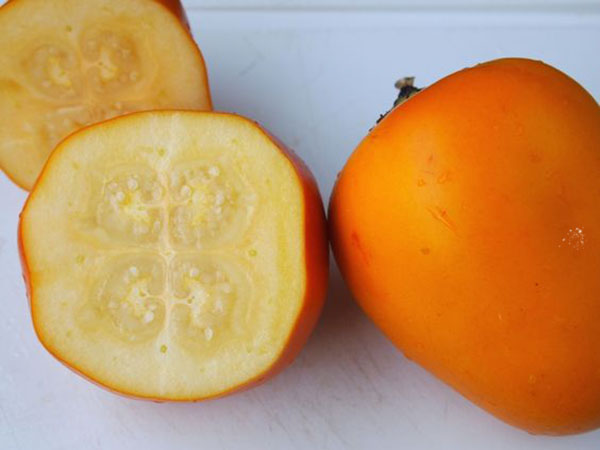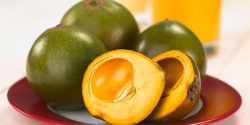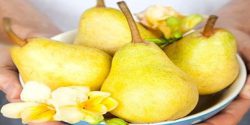Cocona fruit benefits and taste and cocona seeds and pregnancy
Cocona fruit benefits
Cocona fruit benefits and taste and Cocona seeds and pregnancy on Nicholi site. We hope this article will be of interest to you.
Cocona is a fruit that grows in the Amazon basin in South America and belongs to the Solanaceae family. It has a tangy and slightly sweet flavor and is often used to make sauces, jams, and drinks in South American cuisine. Cocona is also believed to have health benefits, including being high in antioxidants, potentially lowering cholesterol, having anti-inflammatory properties, aiding digestion, and supporting the immune system. However, more research is needed to fully understand these potential health benefits. Cocona fruit is generally safe to consume, but some people may experience allergic reactions or digestive discomfort. Cocona fruit seeds are also edible and are a good source of dietary fiber, healthy fats, protein, and other nutrients. While there is limited research on the benefits of Cocona fruit specifically during pregnancy, it is high in vitamins, minerals, fiber, and antioxidants, which may be beneficial for pregnant women.
Cocona Fruta
Cocona is a fruit that is native to the Amazon basin in South America. It is also known as “tree tomato” or “tamarillo” and belongs to the Solanaceae family, which includes other plants such as tomatoes, eggplants, and peppers. Cocona fruit is oval in shape and approximately 4-6 cm in length. It has thin, smooth, and glossy skin that can be red, orange, or yellow in color. The flesh of the fruit is juicy and contains numerous small, edible seeds. It has a tangy and slightly sweet flavor, similar to that of tomatoes, and is often used to make sauces, jams, and drinks in South American cuisine. In addition to its culinary uses, Cocona is also believed to have health benefits. It is a good source of vitamins A, C, and E, as well as minerals such as potassium and phosphorus. It is also high in antioxidants, which may help to protect the body against cellular damage caused by free radicals.
Cocona fruit benefits
Cocona fruit has several potential health benefits, including:
High in antioxidants: Cocona is a rich source of antioxidants such as vitamin C, carotenoids, and flavonoids. Antioxidants help to protect the body against cellular damage caused by free radicals, which can contribute to chronic diseases such as cancer, heart disease, and diabetes.
May help to lower cholesterol: Studies have suggested that Cocona may help to lower cholesterol levels in the blood, which can reduce the risk of heart disease.
May have anti-inflammatory properties: Cocona contains compounds that have been shown to have anti-inflammatory properties. Inflammation is believed to play a role in the development of chronic diseases such as arthritis and heart disease.
May aid digestion: Cocona contains dietary fiber, which can help to promote digestive health by regulating bowel movements and preventing constipation.
May support the immune system: Cocona is rich in vitamin C, which is important for maintaining a healthy immune system. It also contains other nutrients, such as vitamins A and E, which can help to support overall health and well-being.
It is worth noting that more research is needed to fully understand the potential health benefits of Cocona fruit, and it should not be used as a substitute for medical treatment or advice.
Cocona fruit side effect
There is limited research on the potential side effects of Cocona fruit, and it is generally considered safe for most people to consume. However, some people may experience allergic reactions to Cocona or other fruits in the Solanaceae family, such as tomatoes, eggplants, or peppers. Symptoms of an allergic reaction may include itching, swelling, and difficulty breathing. It is also worth noting that Cocona fruit, like many other fruits, contains natural sugars and can contribute to increased blood sugar levels in people with diabetes if consumed in excess. Additionally, some people may experience digestive discomforts such as bloating, gas, or diarrhea when consuming Cocona fruit, particularly if they consume large quantities or if they have a sensitivity to the fruit. As with any food, it is recommended to consume Cocona fruit in moderation and to speak with a healthcare professional if you have any concerns or underlying health conditions.
Cocona fruit taste
Cocona fruit has a unique tangy and slightly sweet taste, similar to that of tomatoes. The flavor is often described as a combination of tomato and passion fruit, with some hints of citrus. The fruit has a slightly acidic taste due to its high content of vitamin C, which gives it a refreshing and zesty flavor. Some people may find the taste of Cocona fruit to be tart or sour, depending on the ripeness of the fruit. Cocona fruit is often used to make sauces, jams, and drinks in South American cuisine, where its tangy flavor is highly appreciated.
Cocona fruit in English
Cocona fruit is actually the English name for fruit. It is also known by other names, such as “tree tomato” or “tamarillo”. The fruit is native to the Amazon basin in South America, where it is commonly consumed and used in cooking.
Cocona seeds
Cocona fruit contains numerous small seeds that are edible and can be consumed along with the flesh of the fruit. The seeds are typically small and soft, with a gelatinous coating that contains pectin, a natural thickening agent often used in cooking. Cocona seeds are a good source of dietary fiber and contain healthy fats, protein, and other nutrients.
The seeds can be eaten raw or roasted, and they are often used in South American cuisine to make jams, sauces, and drinks. Some people also use Cocona seeds in their baking or as a substitute for chia seeds or other types of seeds in recipes.
It’s worth noting that while Cocona seeds are generally safe to consume, some people may experience digestive discomfort when consuming large quantities or if they have a sensitivity to the fruit. As with any food, it’s recommended to consume Cocona seeds in moderation and to speak with your doctor professional if you have any concerns or underlying health conditions.
Cocona fruit benefits in pregnancy
Cocona fruit, also known as Solanum Sessiliflorum, is a tropical fruit native to South America. While there is limited scientific research specifically on the benefits of Cocona fruit during pregnancy, here are some general nutritional benefits of this fruit that may be beneficial for pregnant women:
High in vitamins and minerals: Cocona fruit is a good source of vitamin C, vitamin A, potassium, and iron, which are all important nutrients for a healthy pregnancy.
May help with digestion: Cocona fruit is high in fiber, which can help with digestion and prevent constipation, a common problem during pregnancy.
Antioxidant properties: Cocona fruit is rich in antioxidants, which can help protect against oxidative stress and inflammation, both of which can be harmful to a developing fetus.
May help with hydration: Cocona fruit is high in water content, which can help keep pregnant women hydrated and prevent dehydration, a common problem during pregnancy.
It is important to note that while Cocona fruit is generally considered safe for consumption during pregnancy, it is always a good idea to consult with your doctor before adding any new foods to your diet during pregnancy.






















